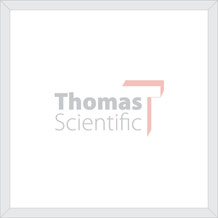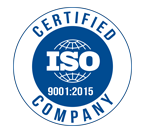NEW! Life Science, Biologically Active Small Molecules
-
Crizotinib
Cayman ChemicalA potent, orally bioavailable, ATP-competitive small-molecule dual inhibitor of c-MET (IC50 = 8 nM) and ALK (IC50 = 20 nM) receptor tyrosine kinases; shows antitumor efficacy in multiple tumor models implanted in athymic mice that express activated c-MET or ALK fusion proteins…
-
Aminopterin
LKT LabsAminopterin is a folic acid analog and derivative of pterin; it is very similar to methotrexate in structure. Aminopterin exhibits anticancer chemotherapeutic and immunosuppressive activities. Like other folic acid analogs, aminopterin inhibits dihydrofolate reductase, depleting nucleotide pools…
-
Cobimetinib
Cayman ChemicalA selective, orally available inhibitor of MEK1 (IC50 = 4.2 nM); induces differentiation and apoptosis in cancer cells lines.
-
AH 6809
Cayman ChemicalAH 6809 is an EP and DP receptor antagonist with nearly equal affinity for the cloned human EP1, EP2, EP3-III, and DP1 receptors. AH 6809 blocks the PGE2-induced accumulation of cAMP in COS cells transfected with the human EP2 receptor. It also blocks the accumulation of Ca2+ in Xenopus oocytes…
-
Fluorescein-5-maleimide
Cayman ChemicalAn activated fluorescent molecule (excitation: 494 nm, emission: 519 nm) used for labeling proteins; reacts optimally with sulfhydryl groups on cysteine side chains at pH 7, forming a stable thioether bond.
-
Oleoyl Serotonin-d17
Cayman ChemicalAn internal standard for the quantification of oleoyl serotonin by GC- or LC-MS.
-
Ginsenoside Rg2
Cayman ChemicalA protopanaxatriol that has diverse in vitro and in vivo effects, including neuroprotective, anti-inflammatory, and anti-diabetic actions; protects against DNA damage and apoptosis induced by ultraviolet light.
-
Oleoyl Ethanolamide-d4
Cayman ChemicalAn internal standard for the quantification of OEA by GC- or LC-MS.
-
6-Aminocaproic Acid
LKT Labs6-Aminocaproic acid is a protease inhibitor that displays anticancer activity but is limited by cytotoxicity. 6-Aminocaproic acid inhibits plasmin, preventing fibrinolysis; it may exhibit pro-thrombotic activity, as it is clinically used to treat bleeding disorders.
-
2-O-ethyl PAF C-16
Cayman Chemical2-O-ethyl PAF C-16 is a synthetic PAF analog which contains an ethyl group, attached by an ether linkage, at the sn-2 position. It is a less potent agonist than methylcarbamyl PAF C-16 in the induction of platelet aggregation in both human and rabbit PRP. 2-O-ethyl PAF C-16 causes aggregation of…
-
CFTR Inhibitor-172
Cayman ChemicalA thiazolidinone that selectively blocks the CFTR channel (Ki = 300 nM) in a voltage-independent manner; prevents cholera toxin-induced fluid secretion in the small intestine, when given by intraperitoneal injection; can affect intracellular GSH concentration and ROS balance.
-
(±)-Jasmonic Acid methyl ester
Cayman ChemicalA mixture of trans (3R/7R and 3S/7S) isomers; induces the synthesis of proteinase inhibitors in plant leaves; in cancer cells, suppresses proliferation and induces apoptosis; inhibits hexokinase that is bound to mitochondria; methyl jasmonate derivatives also have potential as anti-inflammatory agents.
-
2-hydroxy Myristic Acid
Cayman Chemical2-Hydroxymyristic acid is an inhibitor of protein myristoylation requiring about 0.5 mM concentration for full inhibition of acylation.
-
K252c
Cayman ChemicalK252c is a cell-permeable PKC inhibitor (IC50s = 2.45 and 25.7 µM for PKC and PKA, respectively). It induces apoptosis in human chronic myelogenous leukemia cancer cells. In human foreskin fibroblast cells, it reduces focus formation induced by human cytomegalovirus (HCMV) strains…
-
Propylthiouracil
Cayman ChemicalA derivative of thiouracil which has long been used to correct hyperthyroidism; also used as a genetic marker for taste, since only some people detect it as a bitter taste.
-
R-568
Cayman ChemicalA calcimimetic compound that can allosterically activate or positively modulate the human CaSR; dose-dependently decreases circulating levels of PTH in both normal individuals and patients with primary hyperparathyroidism in clinical trials.
-
Salmeterol xinafoate
Cayman ChemicalA long-acting, selective β2-adrenergic agonist with bronchodilator actions (EC50 = 0.25 µM) that demonstrates 2,818-fold selectivity for β2-adrenergic receptors over β1-adrenergic receptors.
-
Cholesterol
MP BiomedicalsCholesterol is the principal sterol of the higher animals, found in all body tissues. It is the main constituent of gallstones and all biological membranes. Approximately 25% of total brain lipid is cholesterol. Cholesterol is suitable for use in liposome preparations.
-
Amphotericin B
Cayman ChemicalA polyene macrolide used in the treatment of infections caused by C. albicans, A. fumigatus, and parasitic L. protozoans, as well as in tissue culture to prevent fungi from contaminating cell cultures; binds with ergosterol in fungal cell membranes, altering membrane permeability and ultimately…
-
C-6 NBD Ceramide
Cayman ChemicalC-6 NBD ceramide is a biologically active fluorescent analog of short chain, membrane-permeable ceramides. It is as effective as C-6 ceramide in the inhibition of viral glycoprotein transport through the Golgi. C-6 NBD ceramide has been used as a fluorescent substrate for the activity of…
-
11ß-Prostaglandin E2
Cayman Chemical11β-PGE2 is the C-11 epimer of PGE2. It is a moderate inhibitor of PGE2 binding to rat hypothalamic membranes with a Ki value of 53 nM. 11β-PGE2 also stimulates bone resorption in rats at concentrations of 10-8 to 10-6 M which is similar to PGE2. 11β-PGE2 inhibits PGE2 binding to the…
-
trans-ISRIB
Cayman ChemicalA symmetric bis-glycolamide that inhibits the eIF2α phosphorylation-mediated unfolded protein response (IC50 = 5 nM in a cell-reporter assay); passes through the blood-brain barrier and significantly enhances learning and memory in mice and rats.
-
(±)15-HETE
Cayman Chemical(±)15-HETE is one of the six monohydroxy fatty acids produced by the non-enzymatic oxidation of arachidonic acid. The biological activity of (±)15-HETE is similar to that of its constituent enantiomers (Item Nos. 34720 and 34710).
-
13,14-dihydro-15-keto Prostaglandin F1a
Cayman Chemical13,14-dihydro-15-keto PGF1α is a metabolite of PGF1α that has been reported in the rat stomach. The measurement of 13,14-dihydro-15-keto PGF1α can be used as a marker of the in vivo production of PGF1α.
-
DL-a-Difluoromethylornithine (hydrochloride hydrate)
Cayman ChemicalAn irreversible inhibitor of ornithine decarboxylase that suppresses polyamine biosynthesis; displays antiangiogenic, cytostatic, and antiparasitic effects.
-
4-Pyrimidinecarboxaldehyde, dimethyl acetal
Cayman Chemical4-Pyrimidinecarboxaldehyde, dimethyl acetal is a synthetic intermediate useful for pharmaceutical synthesis.
-
Quin-2 (potassium salt)
Cayman ChemicalA high-affinity fluorescent calcium indicator (Kd = 115 nM for calcium) that is ideal for monitoring low levels of calcium, as are found in resting cells; may be used to buffer intracellular calcium transients.
-
CPI-613
Cayman ChemicalA lipoic acid analog that inhibits α-ketoglutarate dehydrogenase, particularly in tumor cells; induces a strong mitochondrial burst of reactive oxygen species at 60-240 µM, resulting in cell death; demonstrates both in vitro and in vivo anti-tumor activity.
-
Actinomycin
LKT LabsActinomycin D is a polypeptide antibiotic produced from Streptomyces; it exhibits anticancer chemotherapeutic activity but does not display antibacterial benefit. Actinomycin D is clinically used to treat various cancers and is one component of the VAC chemotherapy regimen. Actinomycin D binds DNA,…
-
Golgicide A
Cayman ChemicalA reversible inhibitor of the cis-Golgi ArfGEF, GBF1 (IC50 = 3.3 µM); induces rapid dissociation of COPI vesicle coat protein from Golgi membranes and disassembly of the Golgi and trans-Golgi network, preventing bidirectional transport of endocytic cargo.
-
BQU57
Cayman ChemicalFormal Name: 6-amino-1,4-dihydro-1,3-dimethyl-4-[4-(trifluoromethyl)phenyl]-pyrano[2,3-c]pyrazole-5-carbonitrile CAS Number: 1637739-82-2 Molecular Formula: C16H13F3N4O Formula Weight: 334.3
-
Solifenacin (succinate)
Cayman ChemicalA competitive antagonist of muscarinic receptors that potently blocks signaling through M1, M2, and M3 (Kis = 25, 125, and 10 nM, respectively), resulting in muscle relaxation.












